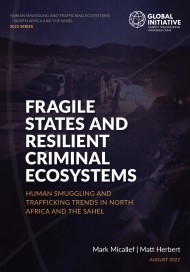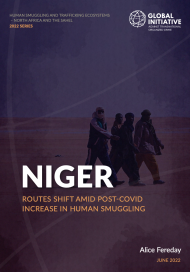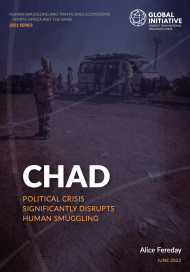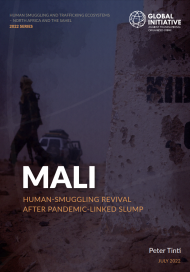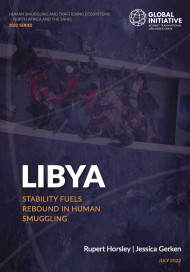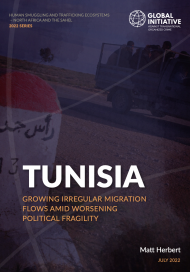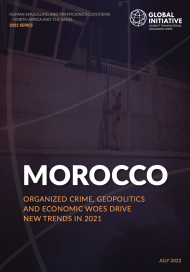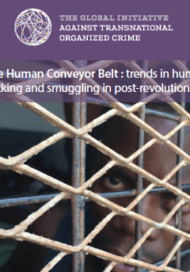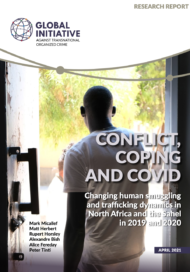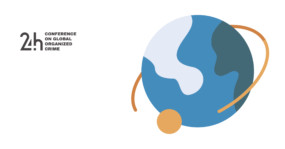Posted on 22 Jun 2022
Since 2018, the Global Initiative Against Transnational Organized Crime (GI-TOC) has undertaken a monthly monitoring programme focused on the political economy of human smuggling and trafficking in North Africa and the Sahel.
The project stemmed from the GI-TOC’s 2017 publication ‘The Human Conveyor Belt’. This was followed by the first report of the monitoring project, ‘The Human Conveyor Belt Broken’, published in early 2019. This report described the fall of the protection racket by Libyan militias that underpinned the surge in irregular migration between 2014 and 2017 and reported on the impact of the enforcement of a law criminalizing human smuggling in Niger between the middle of 2016 and 2019.
The second report of the project, ‘Conflict, coping and COVID,’ published in early 2021, detailed the evolution of human smuggling and trafficking in the face of Libyan conflict and the region-wide COVID-19 pandemic, underscoring both the disruption of the system and its broader continuity.
Rather than a single report covering trends and dynamics in 2021, the GI-TOC is publishing a series of briefs, each covering a country as well as a regional overview brief.
These build on the previous reports, mapping smuggling and trafficking, as well as the political and security dynamics that impacted and influenced the irregular transport of migrants in 2021.
The series of briefs underscores the rebounding importance of smuggling from and through Libya, Tunisia, Niger, Chad and Mali and the ways in which dynamics are intensifying as the COVID-19 pandemic ebbs and a rough peace is maintained in Libya.
